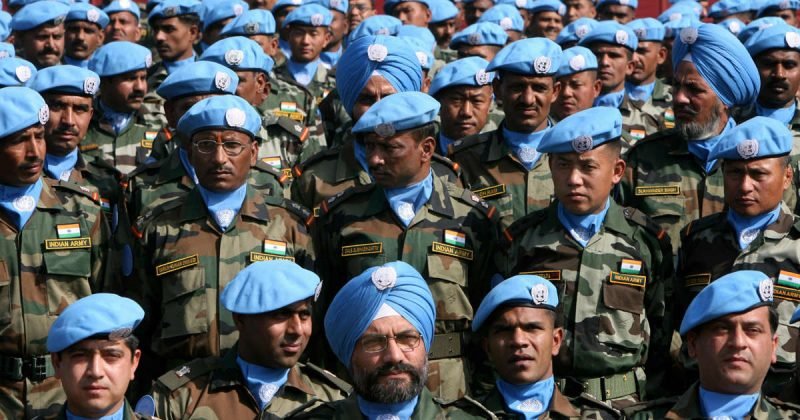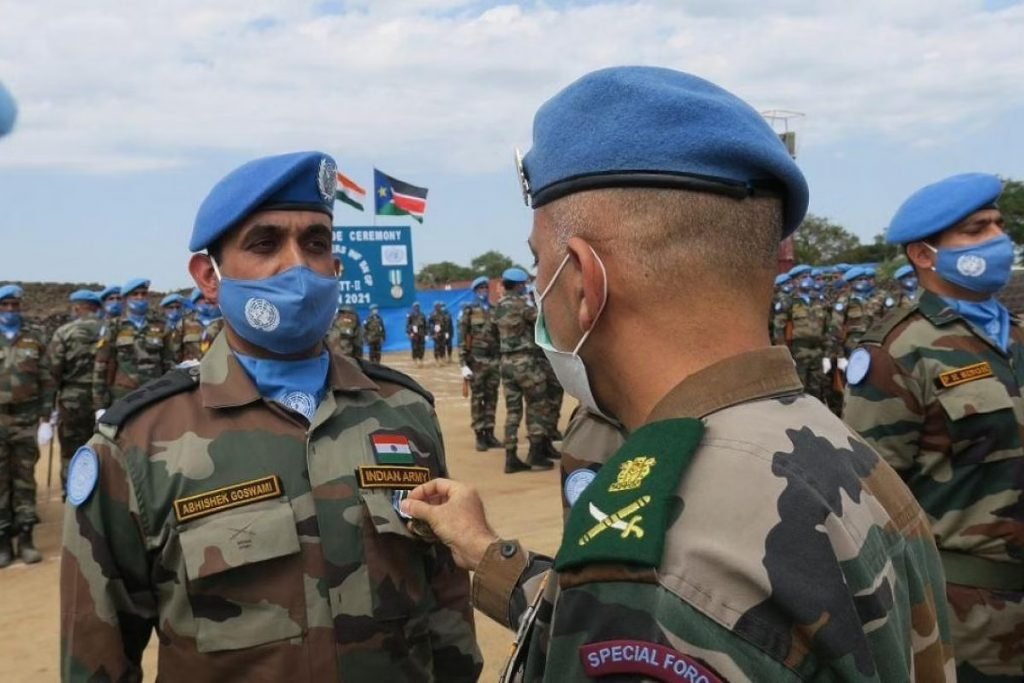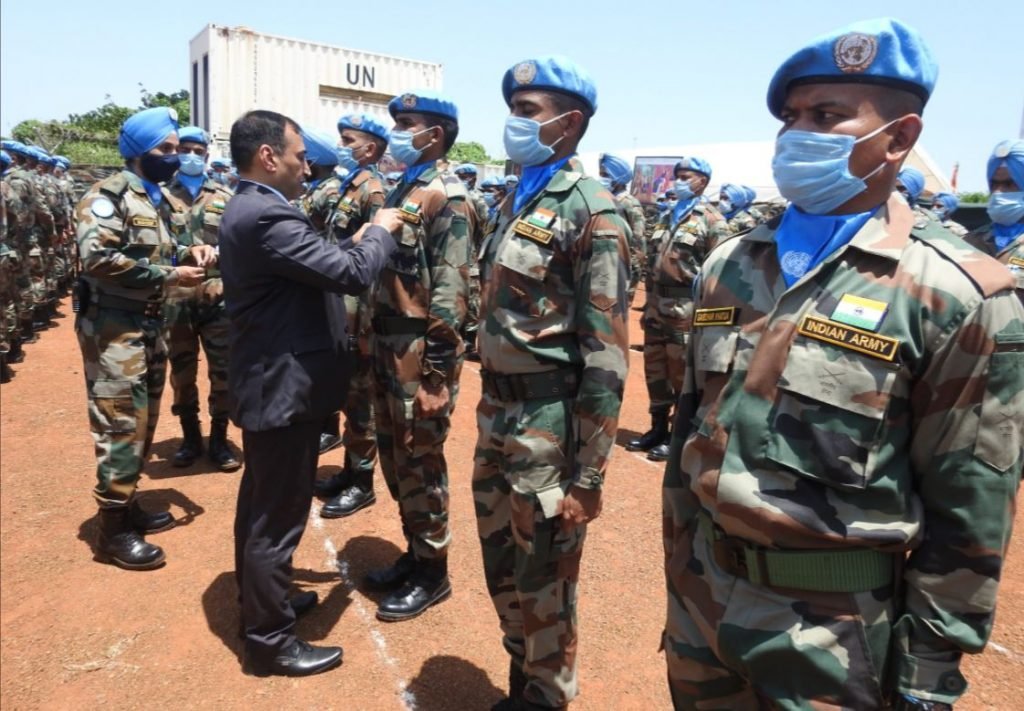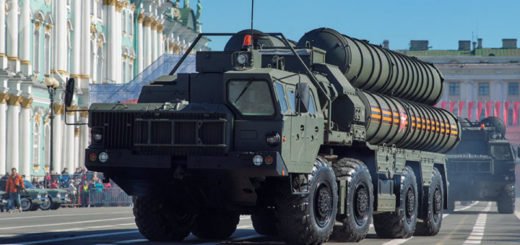[Event] UN Peacekeeping Operations: Challenges of Mission Leadership in Delivering the Mandate

United Service Institute in collaboration with the Indian Council of World Affairs (ICWA) organised the session titled “UN Peacekeeping Operations: Challenges of Mission Leadership in Delivering the Mandate” on 22 April 2022.
USI is an autonomous body established in 1870 and the oldest Think Tank in India. Whereas, ICWA is a Think Tank established by Ministry of External Affairs in 1943.
Key speakers at the event included Lt. Gen. Satish Nambiar, PVSM, AVSM, VrC (Retd), Lt. Gen. JS Lidder, UYSM, AVSM (Retd), Lt. Gen. C Prakash, SM, VSM (Retd), Mr Jack Christofides, Lt. Gen. S S Tinaikar, SM, VSM (Retd), Ambassador Vijay Thakur Singh (Director General, ICWA), Maj. Gen. B K Sharma, AVSM, SM** (Retd) (Director, USI) & Maj. Gen. P K Goswami, VSM (Retd) (Deputy Director, USI).
Maj. Gen. Goswami in his opening remarks, addressed the mission leadership and its challenges. He said “only good is not good enough”. His remarks were in the context of numerous tangible and intelligible factors affecting mission leadership.
Moving ahead, Maj. Gen. B K Sharma welcomed the esteemed panellists and expressed his gratitude to Lt. Gen. Satish Nambiar, who he called the ‘Father of UN Peacekeeping Centre in India’
He elaborated further, that the UN missions today have become very multi-dimensional with all elements such as Human Rights organizations and agencies that are dealing with child and women protection.
And the military contingents also are drawn from various troop-contributing countries with varying ethos, beliefs, cultural priorities and their own interpretation of the mandate depending on what their national interests are.
He spoke about the challenges of the mission leaders, who are expected to deliver in a very alien kind of a conflict environment.
As the proceedings moved ahead, key speakers put their remarks on peacekeeping and its challenges. Here are the excerpts of their address:
Lt. Gen. C Prakash, SM, VSM (Retd)– Former Indian Defense Advisor in France from 2005 to 2008, Senior Sector Operation Officer at the UN in the Iran-Iraq Military Observer Group, Board of Management of Center for UN Peacekeeping New Delhi and later Force Commander at the UN Peacekeeping mission in Congo from 2010 to 2013.
He started his address by explaining core functions and objectives of contemporary peacekeeping. There are three functions as laid down in the Capstone Doctrine
- To create a secure and stable environment while strengthening the state’s ability to provide security with full respect for the rule of law and human rights.
- To facilitate the political process by promoting dialogue and reconciliation and supporting the establishment of legitimate and effective institutions.
- To provide a framework for ensuring that all international actors pursue their activities at the country level in a coherent and coordinated manner.
Lt. Gen. Satish Nambiar, PVSM, AVSM, VrC (Retd) – Head of the Mission and Force Commander at the UN mission in Yugoslavia. A veteran of the 1965 and 1971 wars. Former DGMO, Indian Army and Deputy Chief of Army Staff.
Lt. Gen. Nambiar started his address by sharing his experience as the head of the UN Peacekeeping mission in the former Yugoslavia which was possibly the largest Peacekeeping mission undertaken at that time by the United Nations, with all the media focus that was centred on that part of the world.
He recalled how working along with a diverse group of people from all across the world brought a positive attitude and experience to the mission. He referred to various senior UN dignitaries including Kofi Annan and Shashi Tharoor.
He made a strong leadership point, which he termed consultative leadership which he stressed is very useful in international commitments.

Few takeaways from his address:
- Irrespective of one’s previous credentials when someone joins a mission, they still have to prove their credentials to their subordinates and colleagues and if done, it pays rich dividends.
- One receives unqualified support from the UN headquarters which is a great help in overcoming any hurdles.
- There will be major problems, there will be misunderstandings, and there will be pressure but all of these have to be handled with perseverance.
- One cannot take the local leaders at face value, they will be there to manipulate things, they will be there to lie and they have their own stakes and they will like to do things that suit them and not the UN mission at all.
Mr Jack Christofides: Currently Deputy Head of Mission and Director of Political and Civil Affairs at United Nations Interim Force in Lebanon (UNIFIL). Former South African diplomat.
He outlined leadership in a peace operation in three main ways:
- Leading the mission’s civilian staff and troops
- As the head of a UN body within the UN system
- Towards the outside world, specifically member states in the media.
He explained further the role of coordination between the headquarters and field leaders and emphasized the role to oversee the implementation of the mandate received from the security council and report.
He also spoke about advocating for the reality on the ground and shaping the political narrative in the service. He briefed on the operationalization of mandate and flow of information from the Security Council, the importance of field reports, and the process of review and approval by the Secretary-General. He further briefed on the SG Report as the most important means for the Secretary-General to engage with the council.
Takeaways from his address:
- Importance of information and SG report for the security council for a further brief during the crisis situation so that correct decision are taken.
- Importance of unified decisions and how they go a long way in getting correct resolutions which are acceptable.
- The common means for the head of the mission is to keep the headquarters informed. Focus on the new technology like WhatsApp which emerges as a very fast means of communication.
- Misinformation and mission leadership is misguided. Need to watch out for the wrong kind of narratives.
- Importance of the media in strategic communications and forming narratives in a way that they serve the United Nations principles.

Lt. Gen. JS Lidder, UYSM, AVSM (Retd) – A 1971 war veteran, served the Indian Army for over 40 years. Former Chief of Staff at ONUMOZ (Mozambique), Force Commander UNMIS and post-retirement Deputy SRSG, UNMIS.
Lt. Gen Lidder spoke about his UNMIS experience on the challenges of leadership, in his view the biggest success was the team getting together. He explained how they shed their egos, set their turfs in the morning and how the senior mission leadership played a pivotal role in bringing the team together.
While speaking about his Sudan experience, he said, that right from the beginning of the mandate he was clear on the Comprehensive Peace Agreement which was central to the mission and played the biggest role in the South Sudan referendum.
Takeaways from his address:
- Importance of a leader with respect to the selection process, training and making them accountable.
- Importance of consultative leadership where one needs to take their senior mission leaders throughout the time together and to be on the same frequency length.
- Informing mentally, and physically the junior leaders at the tactical level about intentions of methodology, need to walk the talk with and need to build teams to be able to deliver on the ground.
- As a senior mission leader, one has to be bridged between strategic leadership and tactical leadership.
- Importance of civil-military relations by intervention at the right time in the right manner to resolve problems in time
Lt. Gen. SS Tinaikar, SM, VSM (Retd): An elite Parachute Regiment veteran of the Indian Army. He was a Military Observer in UNAVEM-III, Chief Operations Officer in UNMIS and Force Commander UNMISS.
Lt. Gen. Tinaikar, in his address, spoke about Peacekeeping as a collective responsibility of not only the UN headquarters or the Peacekeeping Mission but the United Nations as a whole that includes the international community at large.
He highlighted the declaration of shared commitments and action for the peacekeeping initiative of the Secretary-General of August 19, which has very well defined the way forward.
He further explained that if Peacekeeping falters today, it is principally because of the slippery nature of politics that drives agreements and the hesitation of the signatories to implement that agreement.
Takeaways from his address:
- Peacekeeping is a collective responsibility. It is not only of the international community but the UN, the host government, the people who are implementing the mandate.
- One can’t take the stakeholders on their face value. Achieving the mandate is not only the force commander’s responsibility but it is the joint responsibility of political, military and the civil affairs and all other actors who are in the country.
- The cause of the problem and humanitarian issues must be addressed, unfortunately, they don’t get addressed.
- Laying down clear-cut areas of responsibility as means to overcome cultural and language barriers.
Ambassador Vijay Laxmi Thakur, Director ICWA
Ambassador Thakur in closing remarks spoke about the opportunity to assess the requirements, the limitations and the challenges for mission leaders. She reiterated the other speakers on the importance of quality leadership and said, “it has to be of the highest calibre because when you are mission leaders you need to deploy a range of skills knowledge and competence to work on the ground and to deliver the mandate and it is highly responsible and delivering a responsibility requires really sterling leadership qualities”
She also spoke about the importance of communication as briefed by the other speakers. And echoed Gen. Nambiar’s words on communication with the UN headquarters as it helps in working on the ground.


















